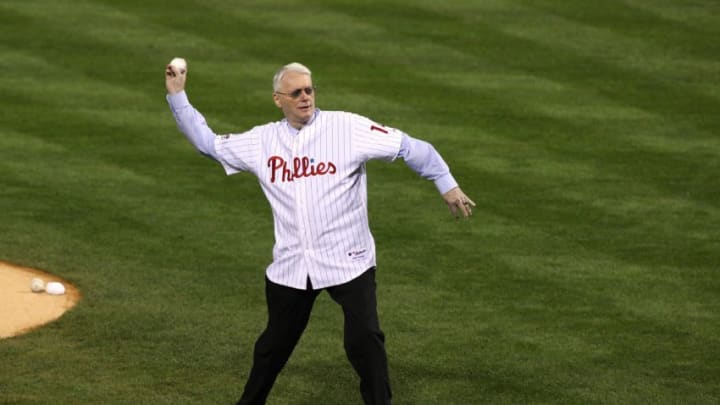It is rare to see a pitcher win 100 games in both the American and National Leagues. On this day in 1970, Phillies pitcher Jim Bunning became the second pitcher to accomplish that feat.
With the American League existing for nearly seven decades, it would have seemed likely that a pitcher would have managed to win 100 games in each league. That happened in 1904, the AL’s fourth year of existence, when Cy Young won his 100th game for the Red Sox. However, after that point, no other pitcher had managed to win 100 games in each league.
That changed on this day in 1970. With a 6-5 victory over the Houston Astros, Phillies pitcher Jim Bunning joined Young in that exclusive group. Bunning had been cruising along for eight innings, allowing just a single run, before tiring in the ninth. In the victory, he allowed the five runs on 11 hits, striking out five over his 8.2 innings.
In his second stint with the Phillies, Bunning was far from his glory days. He was still close to a league average pitcher, but his 10-15 record, along with a 4.11 ERA and a 1.320 WHiP, were not close to the pitcher he had been. That was proven after the outing, as Bunning won just six more games over his career before retiring.
More from Call to the Pen
- Philadelphia Phillies, ready for a stretch run, bomb St. Louis Cardinals
- Philadelphia Phillies: The 4 players on the franchise’s Mount Rushmore
- Boston Red Sox fans should be upset over Mookie Betts’ comment
- Analyzing the Boston Red Sox trade for Dave Henderson and Spike Owen
- 2023 MLB postseason likely to have a strange look without Yankees, Red Sox, Cardinals
During that first run in Philadelphia, Bunning was still a star. Acquired from the Detroit Tigers for Don Demeter and Jack Hamilton after a rough 1963 campaign, Bunning turned his career around. He helped the Phillies become a contender that following season, and made two of his seven All Star Games. Bunning threw a no hitter in each league, and was the second pitcher, after Young, to notch 1000 strikeouts in both leagues as well.
When he retired in 1971, Bunning had put together a solid 224-184 record, along with a 3.27 ERA and a 1.179 WHiP. His 2855 strikeouts were the second most in baseball history, trailing only Walter Johnson. After coming agonizingly close to being inducted into the Hall of Fame, Bunning finally achieved immortality in 1996, voted in by the Veteran’s Committee.
Next: Playoff races are still wild
In his prime, few pitchers compared to Jim Bunning. On this day in 1970, he became the second pitcher in baseball history to win 100 games in each league.
